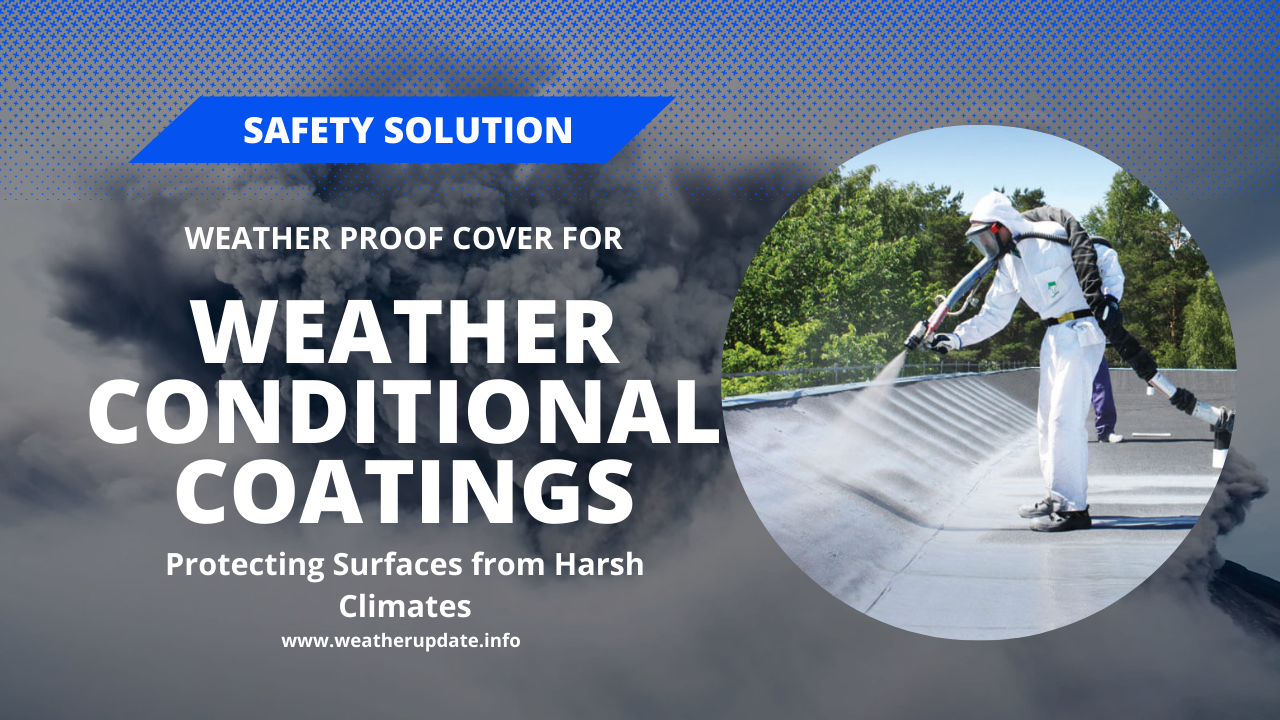Introduction to Weather Conditional Coatings
Weather conditional coatings are specially formulated to withstand the challenges posed by extreme weather conditions. Whether you are dealing with high humidity, freezing temperatures, or intense sunlight, these coatings offer vital protection for various surfaces. In this article, we will explore the different types of weatherproof coatings and their benefits for outdoor applications, industrial use, and more.
What Are Weather Conditional Coatings?
Weather conditional coatings are protective layers that are designed to endure environmental factors such as temperature fluctuations, rain, UV rays, and saltwater exposure. These coatings are formulated to prevent corrosion, fading, and degradation of the underlying materials they protect. They are commonly used in industries that face harsh weather conditions, such as construction, marine, and automotive sectors.
Applications of Weather Conditional Coatings
1. Outdoor Applications
Coatings for weather conditions are widely used in outdoor applications to protect buildings, roofs, and infrastructure. Weatherproof coatings for buildings prevent damage from moisture and UV exposure, which can lead to cracks, mold, and rust. These coatings ensure that your structures remain intact even in the harshest environments.
2. Industrial Use
Industrial environments often expose materials to extreme temperature fluctuations and moisture. Weather conditional coatings for industrial use provide robust protection against rust and corrosion, ensuring the longevity of machines, pipelines, and other industrial equipment.
3. Marine Environments
Marine coatings are critical for equipment and structures that come into contact with saltwater. Weatherproof coatings for marine environments protect boats, docks, and offshore platforms from the corrosive effects of seawater, ensuring they last longer and require less maintenance.
4. Wood Preservation
Wooden surfaces are particularly vulnerable to the elements. Using weather conditional coatings for wood preservation helps to prevent rot, warping, and discoloration caused by rain, humidity, and direct sunlight. These coatings ensure the durability and aesthetic quality of wooden structures over time.
Benefits of Weather Conditional Coatings
1. Temperature Resistance
One of the primary advantages of these coatings is their ability to withstand extreme temperatures. Temperature resistant coatings for harsh weather provide essential protection against both freezing and scorching temperatures, helping to prevent surface cracking and material degradation.
2. Durability in Harsh Conditions
Coatings that withstand harsh weather conditions help preserve the integrity of materials by providing a protective barrier against rain, snow, and high winds. This makes them ideal for use in construction and outdoor infrastructure, especially in areas prone to extreme weather.
3. UV Protection
Exposure to UV rays can cause fading and breakdown of materials over time. How weather conditional coatings protect from UV damage is a crucial aspect, as these coatings prevent discoloration and structural damage caused by prolonged sun exposure.
4. Long-Lasting Protection
Weatherproof coatings are designed to last for many years, reducing the need for frequent maintenance and reapplication. Long-lasting weather conditional coatings for roofs, for example, prevent the buildup of mold, algae, and rust, ensuring your roof remains in top condition for years.
Choosing the Right Weather Conditional Coating
When selecting a weather conditional coating, it’s important to consider the specific needs of your project. Are you dealing with metal surfaces that need to resist rust? Are you protecting wood from moisture damage? Are you working in a marine environment where saltwater corrosion is a concern? Understanding your requirements will help you choose the right type of coating for your needs.
Conclusion
In conclusion, weather conditional coating are an essential solution for protecting surfaces exposed to harsh weather conditions. From outdoor applications to industrial and marine use, these coatings provide long-term protection against UV damage, moisture, and temperature extremes. By choosing the right coating, you can ensure the durability and integrity of your surfaces for years to come.

